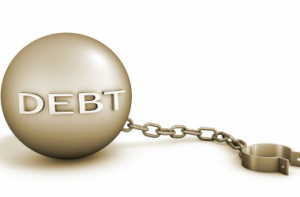 Today’s top story: Is your debt good or bad? Also in the news: How to get a copy of your tax returns or an IRS transcript, why you might not get $125 in Equifax settlement money, and 13 tips for throwing a budget-friendly kid’s birthday party.
Today’s top story: Is your debt good or bad? Also in the news: How to get a copy of your tax returns or an IRS transcript, why you might not get $125 in Equifax settlement money, and 13 tips for throwing a budget-friendly kid’s birthday party.
Is Your Debt ‘Good’ or ‘Bad’? It Depends
How to determine what you’re dealing with.
How to Get an IRS Transcript or Copy of Your Tax Return
Keep a copy handy.
Why You Might Not Get $125 in Equifax Settlement Money
Don’t spend that money just yet.
13 Tips for Throwing a Budget-Friendly Kid’s Birthday Party
Cut costs without cutting the fun.
 Today’s top story: Dodge dealership dread with online used car sellers. Also in the news: What first-time home buyers should know about fixer-uppers, how to save for the future when it’s uncertain, and how long it takes for paid debt to be reported to credit bureaus.
Today’s top story: Dodge dealership dread with online used car sellers. Also in the news: What first-time home buyers should know about fixer-uppers, how to save for the future when it’s uncertain, and how long it takes for paid debt to be reported to credit bureaus.  Today’s top story: Paying debt back home vexes expats. Also in the news: 6 surefire ways to delay your tax refund, can your employer cure your money woes, and how paying your credit card minimum puts you in a debt spiral.
Today’s top story: Paying debt back home vexes expats. Also in the news: 6 surefire ways to delay your tax refund, can your employer cure your money woes, and how paying your credit card minimum puts you in a debt spiral. Today’s top story: 5 tips for cutting the cost of having your taxes done. Also in the news: How to find the dirt on your tax preparer, making the most of a gig economy to pay down debt, and 11 smart ways to spend your tax refund.
Today’s top story: 5 tips for cutting the cost of having your taxes done. Also in the news: How to find the dirt on your tax preparer, making the most of a gig economy to pay down debt, and 11 smart ways to spend your tax refund.